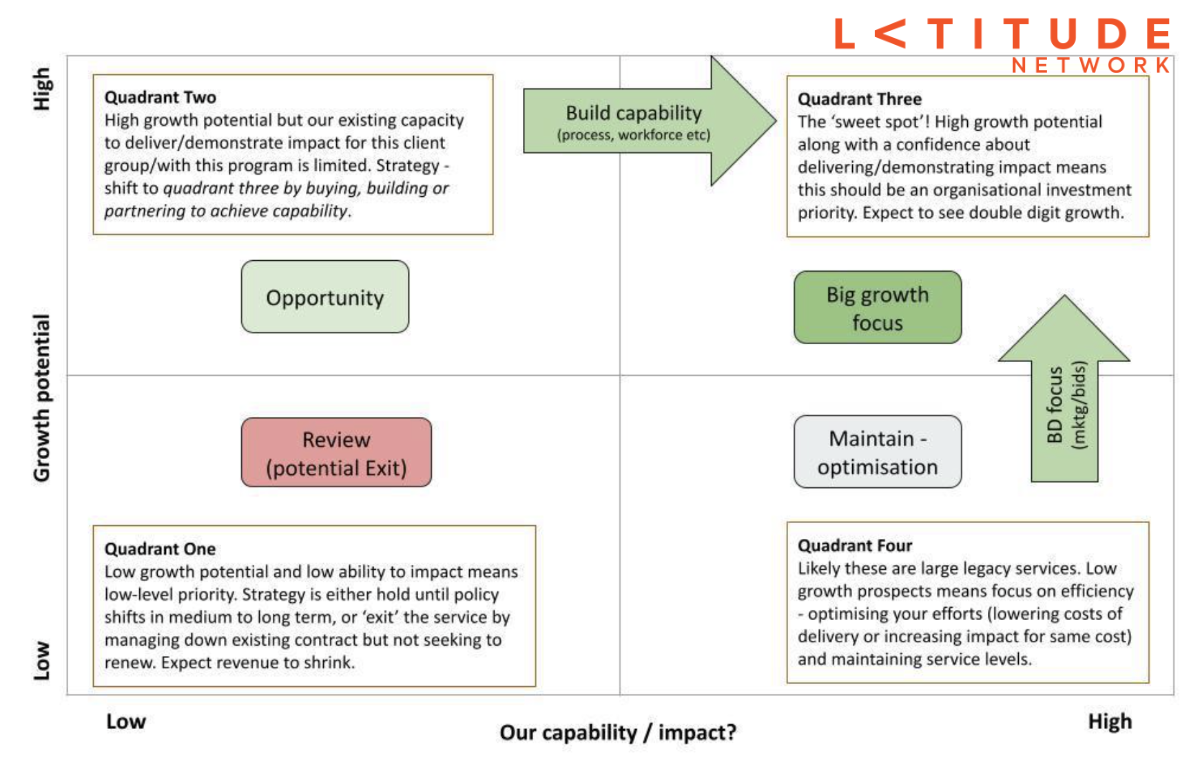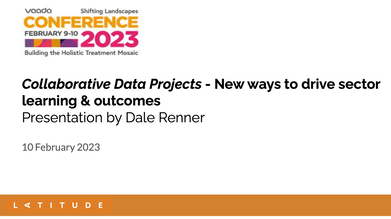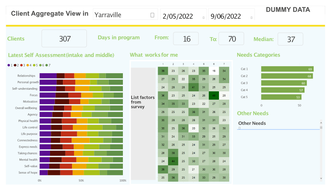 It might come as a surprise (shock) that not everybody loves or understands data. Sometimes to get executives engaged with your data project, you have to help them care at least a bit about data. When pitching the Data Impact Journey to decision makers, you can share the benefits you can expect to get out of such a project. These include - 1. Improved Decision Making: Data-driven decisions are often more accurate and reliable than those based on intuition or anecdotal evidence. Investing in data skills and systems can provide the necessary tools and knowledge to make informed decisions. 2. Enhanced Service Delivery: Understanding the needs and preferences of your beneficiaries through data can help tailor your services more effectively, leading to improved outcomes and increased beneficiary satisfaction.  The team at Latitude Network is starting the year with a new more focused mission - 'Building a data-empowered social sector.' Why? Because we’ve learned over the last seven years of work with many great and varied organisations that data is a key to how we achieve better social impact. Most social organisations also recognise that they are at the early stages of their data journey, with plenty of opportunity to improve and grow. You can read more about what data empowerment looks like in this article or in our updated website.  Is your board focusing more on compliance than impact? Is it engaged or disengaged with critical organisational matters? What questions does it ask of its executive team and what evidence does it require in dealing with the response? Is the board using data to make impact-led decisions? Quite rightly, much has been written and spoken about our compliance duties as board members in recent years. And we still have a way to go yet to give ourselves, and our stakeholders, comfort that we have appropriate systems and processes in place to manage data safety and security. But what about your board’s key function - to deliver on the organisation’s mission? In our experience, most board’s are not using good, reliable data to make impact-driven decisions. Are you determined to grow as an organisation and do you have a plan to do it?
How do you determine which service areas your organisation should invest in and what your growth targets are? Importantly - How do you balance growth in impact and growth in revenue? Mission-led organisations need to focus on delivering both revenue (financial sustainability) and social impact (outcomes that matter to clients of our services). But in an environment of finite resources (and potentially diminishing resources) the question is how to assess where these limited resources should go to achieve growth goals and targets. One way we have helped clients think about their growth is to review each of their programs across two dimensions using our Strategic Growth Matrix©. The purpose of the Strategic Growth Matrix is to force critical thinking about each of the services and programs the organisation offers and prioritise resources in a way that best achieves the mission of social impact. Sometimes organisations with lots of revenue and staff can feel their goal is simply to grow as an organisation - more money, more staff. But the Strategic Growth Matrix helps make the social impact goals of the organisation more explicitly reflected in strategy, not just the financial sustainability goals. In February, Dale presented at the Victorian Alcohol and Drug Association (VAADA) conference on how a whole social sector can come together to take leadership of data and develop a collaborative data project to share useful data across multiple stakeholders. Collaborative data projects enable a sector to see the 'whole impact' of the sector and measure outcomes in consistent ways. See the presentation pack below.
5 things you can do to better empower frontline workers in your organisation:
|
Filter by:
All
Archives
April 2024
|
|
We acknowledge all First Peoples of this land and celebrate their enduring connections to Country, knowledge and stories. We pay our respects to Elders and Ancestors who guide the Aboriginal and Torres Strait Islander community. We also acknowledge the wisdom, dignity and lived experience of the people who benefit from social services.
|
Ready to harness the power of data for your organisation?
|
Data Empowered Social Impact
|




 RSS Feed
RSS Feed
